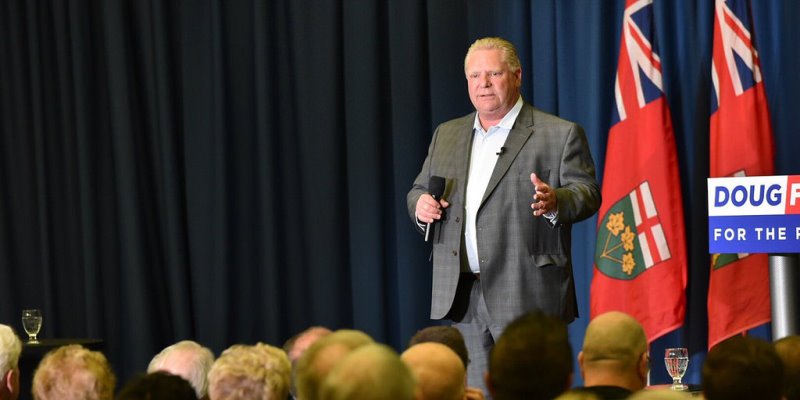Ford government should exercise prudence in these volatile times

As uncertainty swirls, the Ford government, which next week will release a fiscal update—instead of a planned complete 2020 budget—should remember that prudence is the best shield to protect government finances.
If a recession hits, the government will collect less-than-expected revenue in the years ahead. Of course, this would be bad news for Ontario given how much debt we’ve already accumulated over the past 15 years. In 2004/05, provincial net debt stood at $140 billion. This year, that number is set to hit $354 billion.
Even before the COVID crisis that’s accelerated daily over the past few weeks, Ontario was already on track to keep adding to this debt in coming years. The Ford government’s first budget called for continued deficits through 2022/23 (which would make a string of 15 in a row) with provincial net debt forecasted to reach $389 billion that year.
Remember, these numbers were the forecast back in 2019, before stock markets around the world crashed and the global economy teetered.
So what can the Ford government do to protect Ontario’s finances during this period of wild uncertainty and the possibility of less revenue? For starters, it can develop a fiscal plan focused on greater prudence with respect to government spending, slowing down the accumulation of debt in Ontario as it’s repeatedly committed to do, so the province is in the best possible position to withstand bad news on the revenue side of the ledger.
The Ford government surprised many observers in its first budget by—despite frequent complaints of profligacy on the part of the preceding Wynne government—continuing the practice of increasing nominal spending year to year despite the persistence of large deficits.
A Fraser Institute study published last year showed that despite rhetorical differences between various Ontario premiers, the first Ford budget’s approach to public spending was very similar to several of its predecessors during the mid-2010s, in that they continued to implement small nominal spending increases while hoping for larger revenue gains to shrink the deficit over time.
The result of this policy approach was a significant run-up in debt—again, something Premier Ford has repeatedly vowed to not allow to happen again.
Indeed, the Ford government was elected largely on a promise to repair Ontario’s finances. Yes, recent economic developments may make this job harder. But again, to give itself the best chance of achieving its goal regardless of the circumstances, the Ford government’s only choice is to focus on what it can control—the spending side of the ledger.
By reducing spending over time, the Ford government can help protect Ontario’s finances from the economic uncertainty swirling around the globe and reduce the chances of another rapid run-up in debt, which will land squarely on the backs of Ontarians.
Author:
Subscribe to the Fraser Institute
Get the latest news from the Fraser Institute on the latest research studies, news and events.

